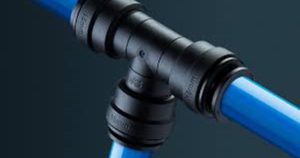Important Part of Plumbing
When it comes to maintaining your home, there are a lot of different items that need your attention. From mowing the lawn to replacing dead light bulbs, it can feel like there’s always something that needs taking care of. And while many people don’t think about it, plumbing is actually one of the most important parts of your home. Without it, you wouldn’t be able to shower, wash your dishes, flush the toilet, or water your garden.
That’s why it’s so important to have a properly functioning plumbing system and that everyone understands how it works. But what exactly makes up a plumbing system? In this article, we’ll take a look at the different parts that go into making up your plumbing and what each one does.
The pipes in a plumbing system are the backbone of it all. They serve as the pathways for water to travel throughout your home from its source, whether that be from a city water line or well. They can also transport wastewater out of your home into the sewage system. These pipes are made from materials such as copper, brass, and PVC and can last a lifetime with proper care and maintenance.

The Most Important Part of Plumbing
Plumbing fittings are what connect all of the pipes together. They’re also what allow for things like faucets and toilets to be installed in homes. These fittings are made from a variety of materials, including PVC, cast iron, and stainless steel. They’re chosen for their durability and corrosion resistance, which allows them to withstand the pressure of water flowing through them and the elements. They can also be used to make tighter or looser connections between pipes.
Valves are a key component of any plumbing system. They’re what control the flow of water in your house, allowing you to turn on and off things like faucets and showers. They’re also what keep water at a set temperature in your home. They can be manually controlled or automated, depending on the type of valve you have.
Just as important as water lines are the drains and wastelines that take wastewater away from your home. This helps to prevent the buildup of harmful substances in your sewer system, which could cause a lot of damage if left untreated.
To avoid this, drains are regularly cleared of debris such as hair, soap scum, and grease, which can cause them to clog. To do this, plumbers use a range of tools such as plungers, snakes, and drain cleaners. A plumber’s most essential tool, however, is probably a strap wrench. This is a specialized wrench that has a rubber-coated strap that helps it grip objects like pipes without damaging them. This is especially useful when working in tight spaces or around fixtures. Other tools that are good to have on hand include a pipe cutter, a tape measure, and tongue and groove pliers. With these tools, a plumber can quickly and efficiently perform repairs on your plumbing.